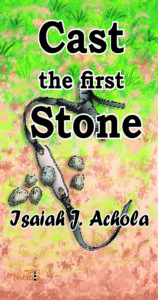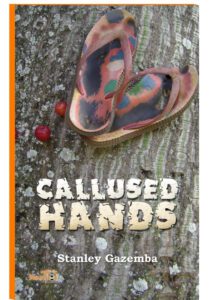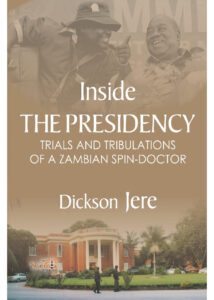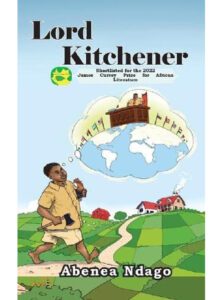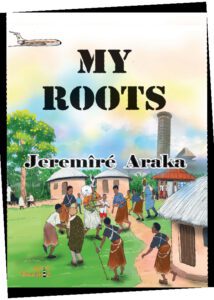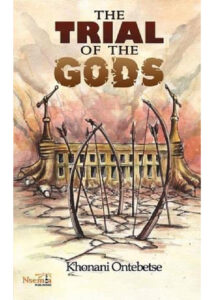
- Title: Oral Poetry: The Abagusii of Kenya
- Year: 2021
- Author: Christopher Okemwa
- Publisher: Nsemia Inc. Publishers, Ontario, Canada
- Reviewed on: May 22, 2023
Oral Poetry in Africa: the Abagusii of Kenya
ISBN 978-1989928042 (Nsemia Inc., 2021)
By Christopher Okemwa; Reviewed by Harriet Wairimu, May 22nd, 2023
Oral Poetry in Africa: the Abagusii of Kenya by Christopher Okemwa is an influential work that penetrates the rich cultural heritage of the Abagusii people and their poetic traditions. The book illustrates the rich oral traditions of the Abagusii people. For academics, researchers, and those interested in African literature, oral traditions, and the preservation of cultural legacy, Okemwa’s book is a vital and reliable source. It advances knowledge of the Abagusii community and emphasizes the value of oral poetry more generally as a vehicle for cultural expression. In this literature review, we will critically analyze the book’s structure, strengths, and weaknesses, and provide an overall assessment of its contribution to the field of African literature.
Okemwa’s  book is commendably well-structured, with a clear progression of ideas and an orderly framework. The introductory chapters effectively set the stage by providing historical and cultural context, enabling readers to understand the Abagusii community and its oral poetry tradition. The subsequent chapters explore various aspects of Abagusii oral poetry, including stylistic elements, themes, performance context, and different gender roles. Because of the book’s outstanding organization and structure, readers may move through the subject matter gradually. The systematic arrangement of chapters ensures a comprehensive exploration of the subject matter.
book is commendably well-structured, with a clear progression of ideas and an orderly framework. The introductory chapters effectively set the stage by providing historical and cultural context, enabling readers to understand the Abagusii community and its oral poetry tradition. The subsequent chapters explore various aspects of Abagusii oral poetry, including stylistic elements, themes, performance context, and different gender roles. Because of the book’s outstanding organization and structure, readers may move through the subject matter gradually. The systematic arrangement of chapters ensures a comprehensive exploration of the subject matter.
The author expertly uses stylistic components, such as songs, proverbs, and local dialects, underlining their importance in expressing cultural values and emotions. An example is the proverb enyomba y’abaiseke abange n’ekerandi getakwoma (pg. 2) which means a home with many girls is like a gourd that never dries. Here, he is explaining how the payment of dowry, which came in the form of cows in traditional Gusii, enriches the girl’s family.
Reading this book, one gets the impression that songs are the main source of oral poetry for the Abagusii. Each song has a specific role it plays in the community and each has its occasion. For instance, there are funeral songs, marriage, circumcision and children songs. An example of a circumcision song is the Esimbore which is sung in the transition of the boy from childhood to adulthood. The song itself is a bit vulgar but for such occasions such taboo words are exempted. As an example, “Ise Mokami oirire mboro chiaito” (pg. 24) meaning Mokami’s father has ‘taken our penises’. Another circumcision song is the Eki’Omogoko (pg. 31) which describes how an initiate’s selfish mother will be obliged to share her goods with the community while hosting them for the ceremony. Egesimba and Omware are some examples of Abagusii words used in the book referring to the initiate. This brings the Abagusii culture to life.
Christopher Okemwa provides clear interpretations that shed light on the experiences and goals of the Abagusii people by examining the themes found in the oral poetry. Some of the themes include love, tradition, gender roles, family relations and tragedy. Gender roles are exhibited clearly in songs like Nyarokumbo which was sung by girls during courtship. In the song, the lady talks about fetching firewood for the family to keep them warm during rainy seasons. Tradition is also well brought out in the song Amabuko A’bare (pg. 33) where it was traditionally expected that the initiate’s grandfather would burn the leaves and branches of a lavender tree during the circumcision process.
The author’s investigation of the particular settings and circumstances in which oral poetry is performed offers insightful information on the respective sociocultural settings. This feature deepens the analysis and enables readers to understand the many characteristics of Abagusii oral poetry. He has classified the oral poetry traditions into birth, circumcision courtship, marriage and death. The insightful readings and analyses of Okemwa demonstrate his in-depth familiarity with the Abagusii community and its oral traditions.
The book could have been made even better, though, by adding additional translated samples of Abagusii oral poetry so that readers may interact with the writings directly enabling a closer connection with the texts. An example of a song that he used without translating is the song of Esuguta by Nelson Nyag’era. (pg. 28)
To sum up, Christopher Okemwa’s Oral Poetry in Africa: the Abagusii of Kenya is a priceless addition to the study of African literature and the preservation of oral traditions. The cultural relevance of Abagusii oral poetry is skillfully explored in this work, which also provides insightful analyses of the community’s past, beliefs, and worldview.
Copies of Oral Poetry in Africa: the Abagusii of Kenya are available in major bookshops in East Africa and online via nuriakenya.com or amazon.com; you can also reach the publisher via email at [email protected] or via WhatsApp at +254 101 915 260.
Harriet Wairimu, May 22nd, 2023
Harriet Wairimu studies English and Literature at Chuka University, Kenya.

